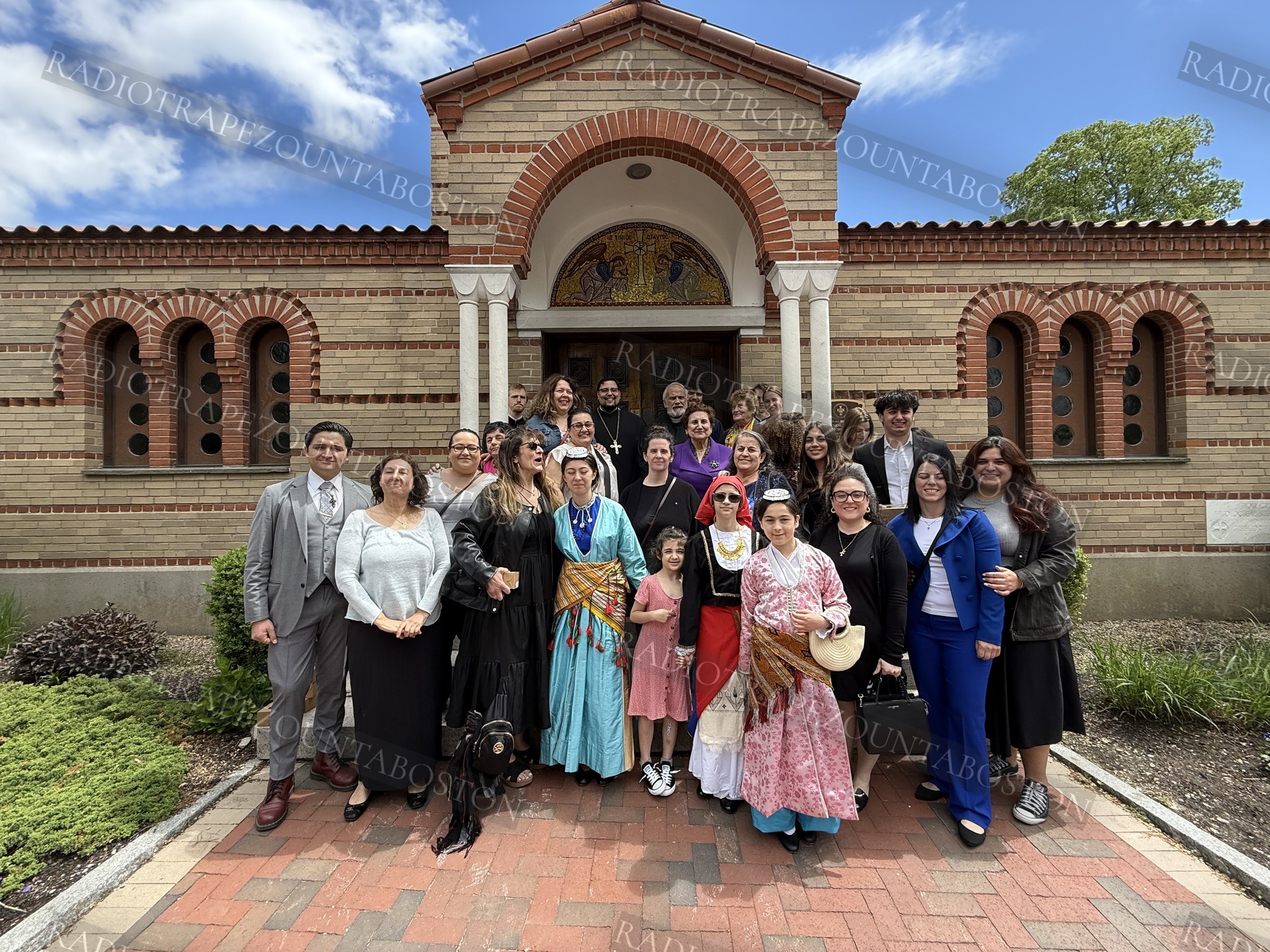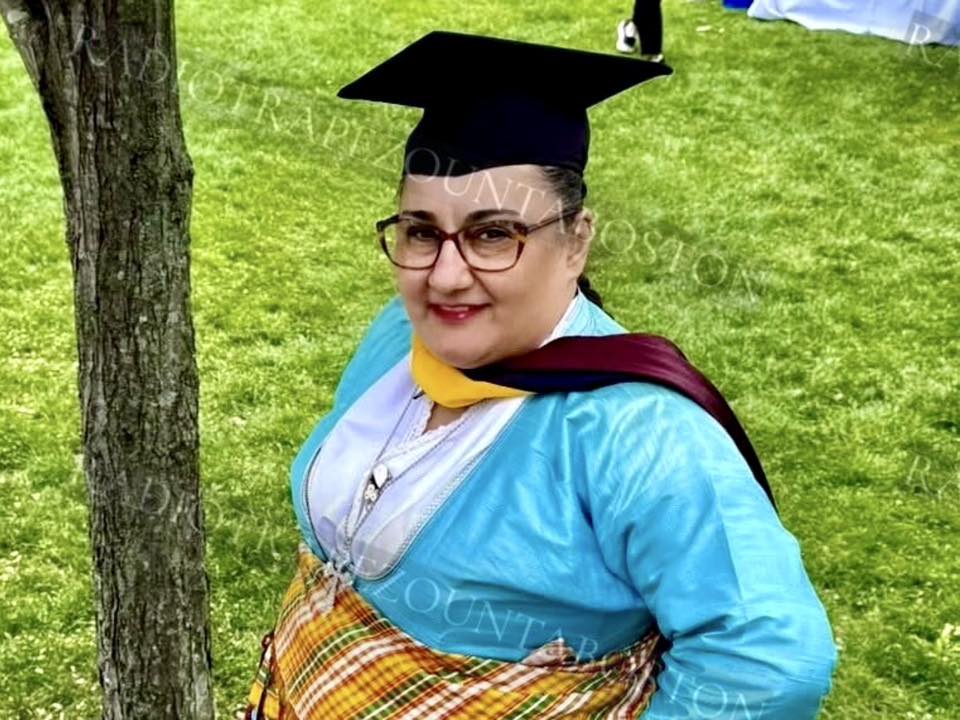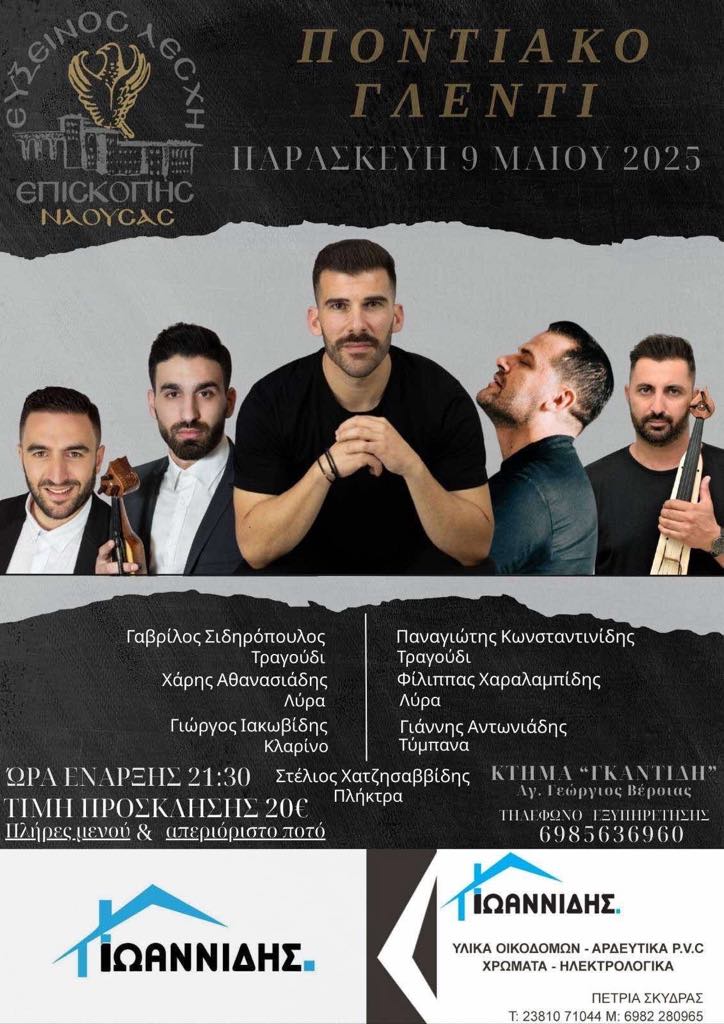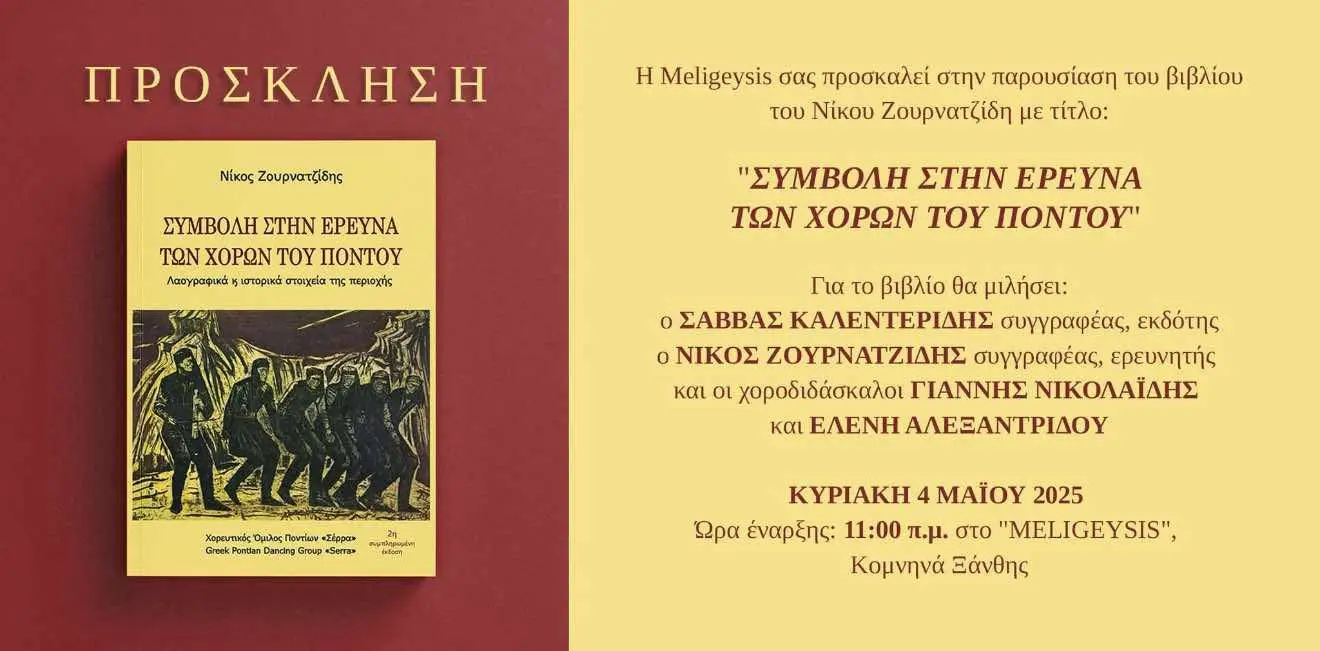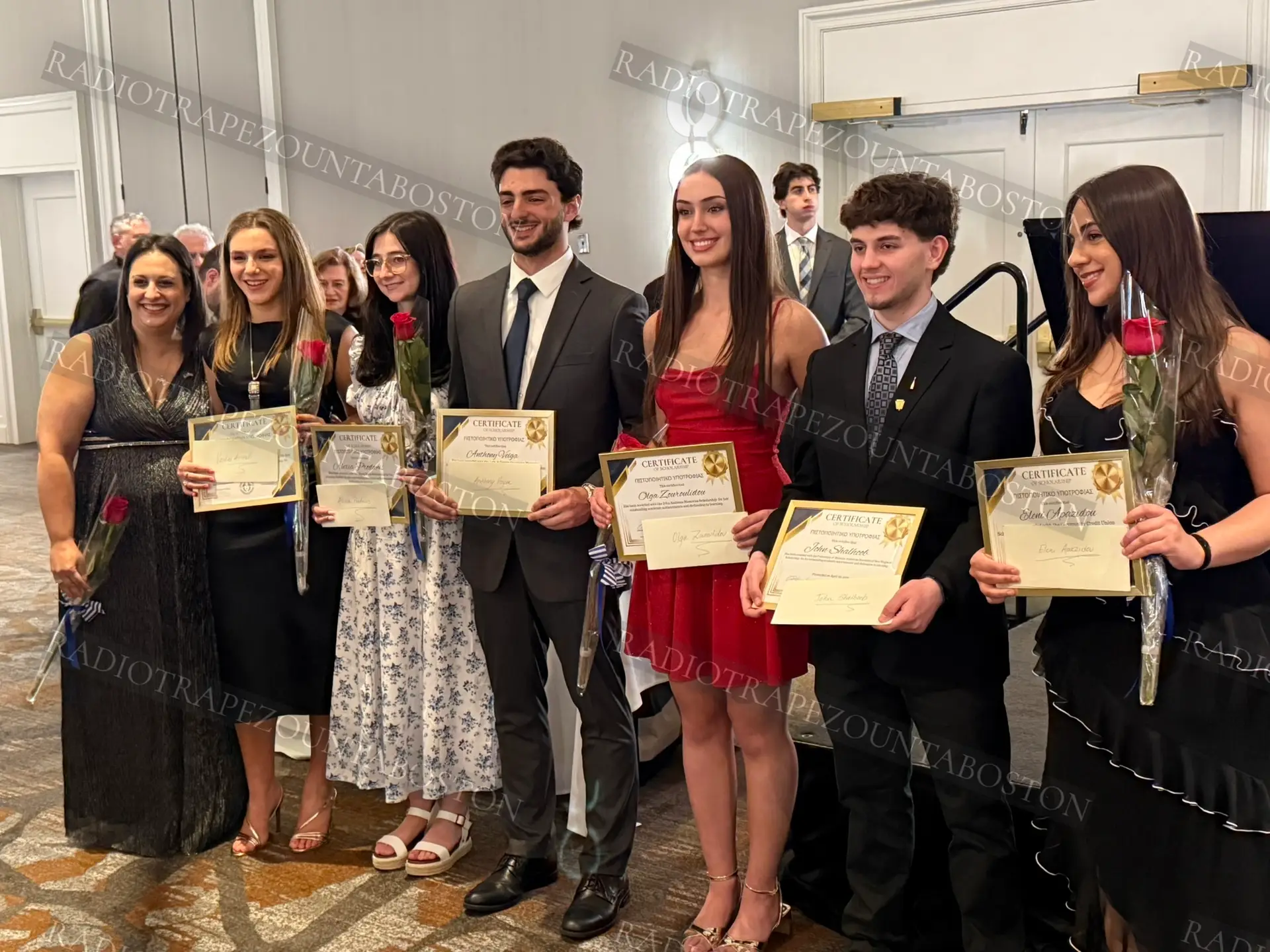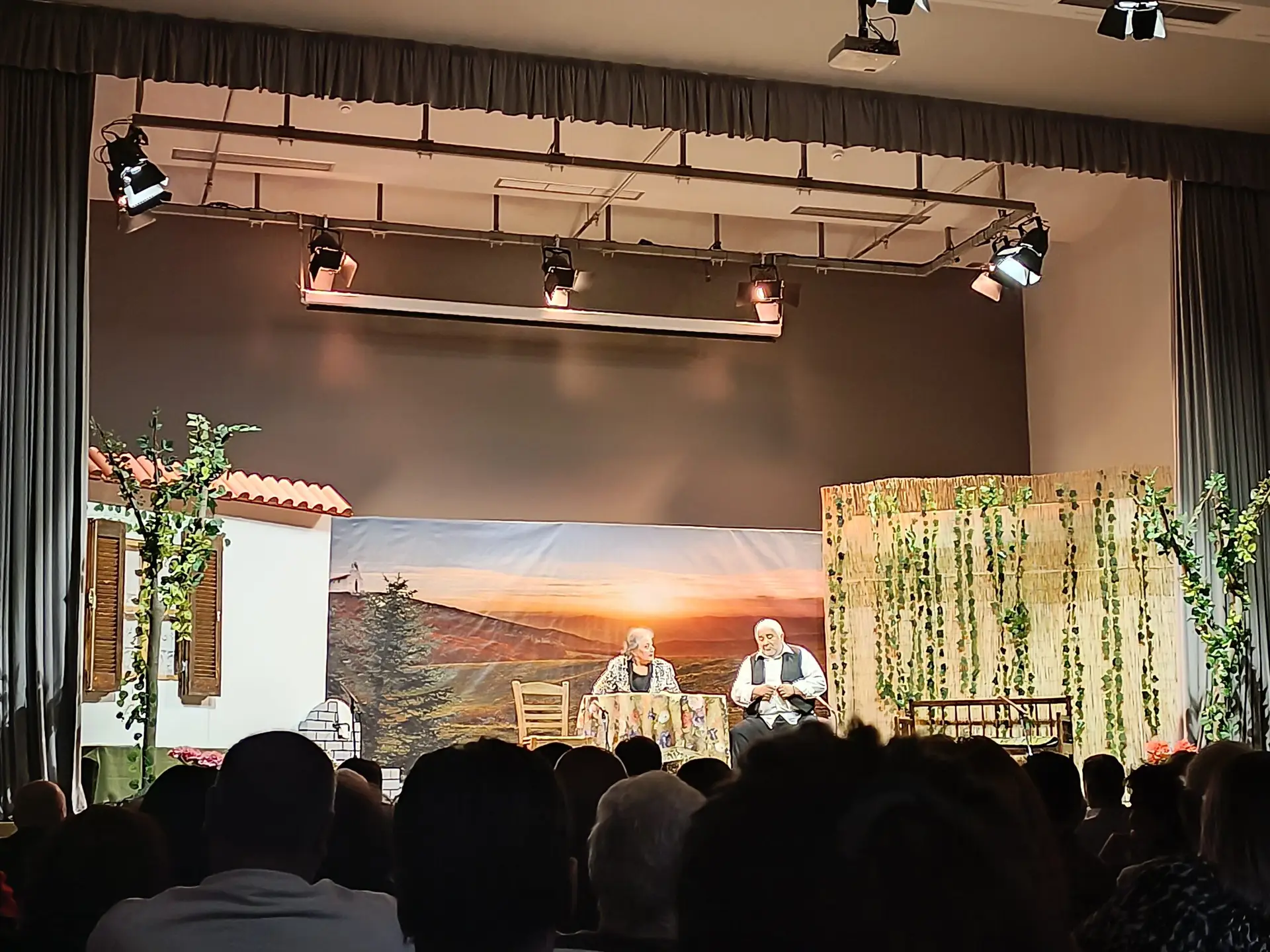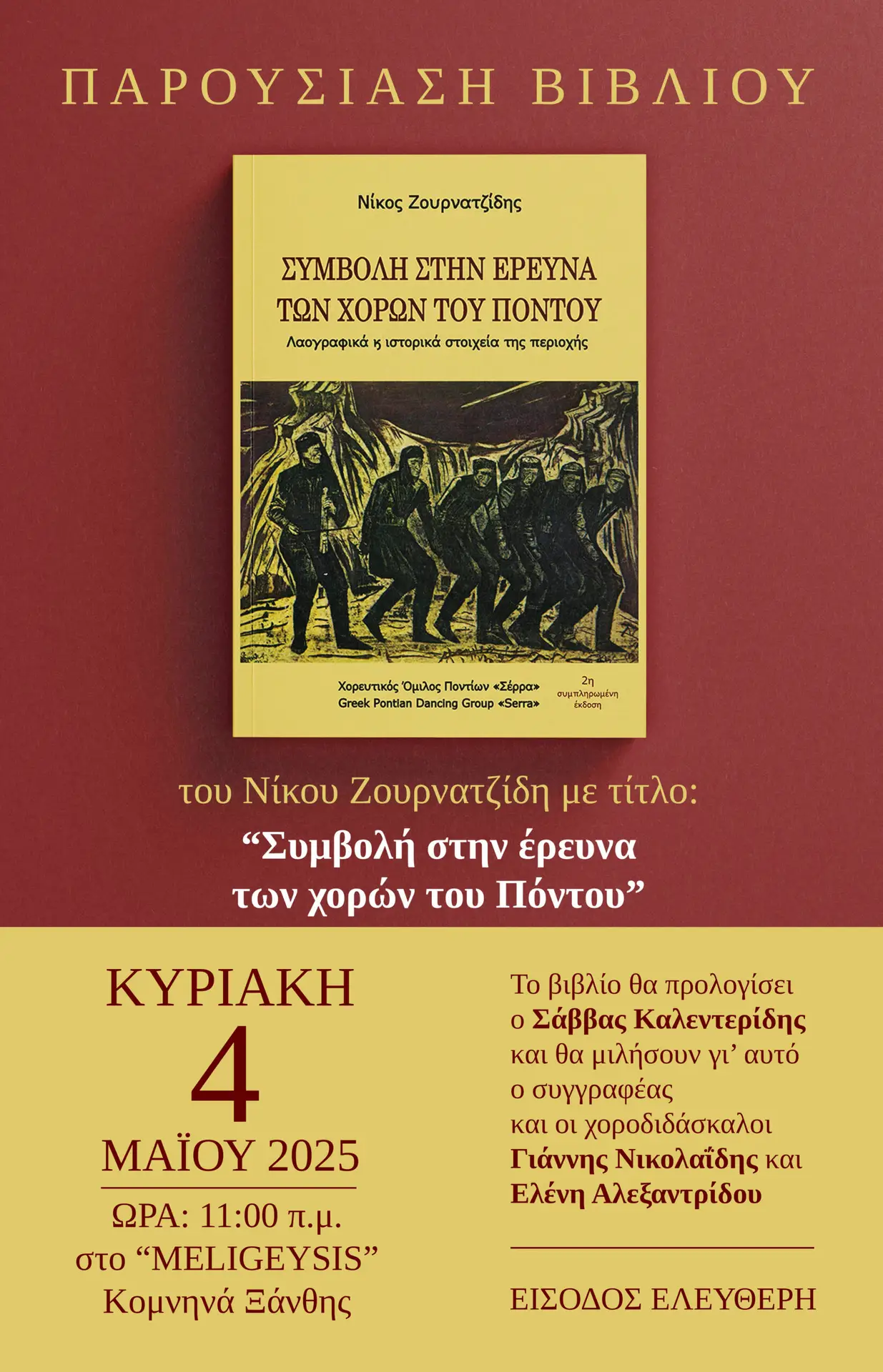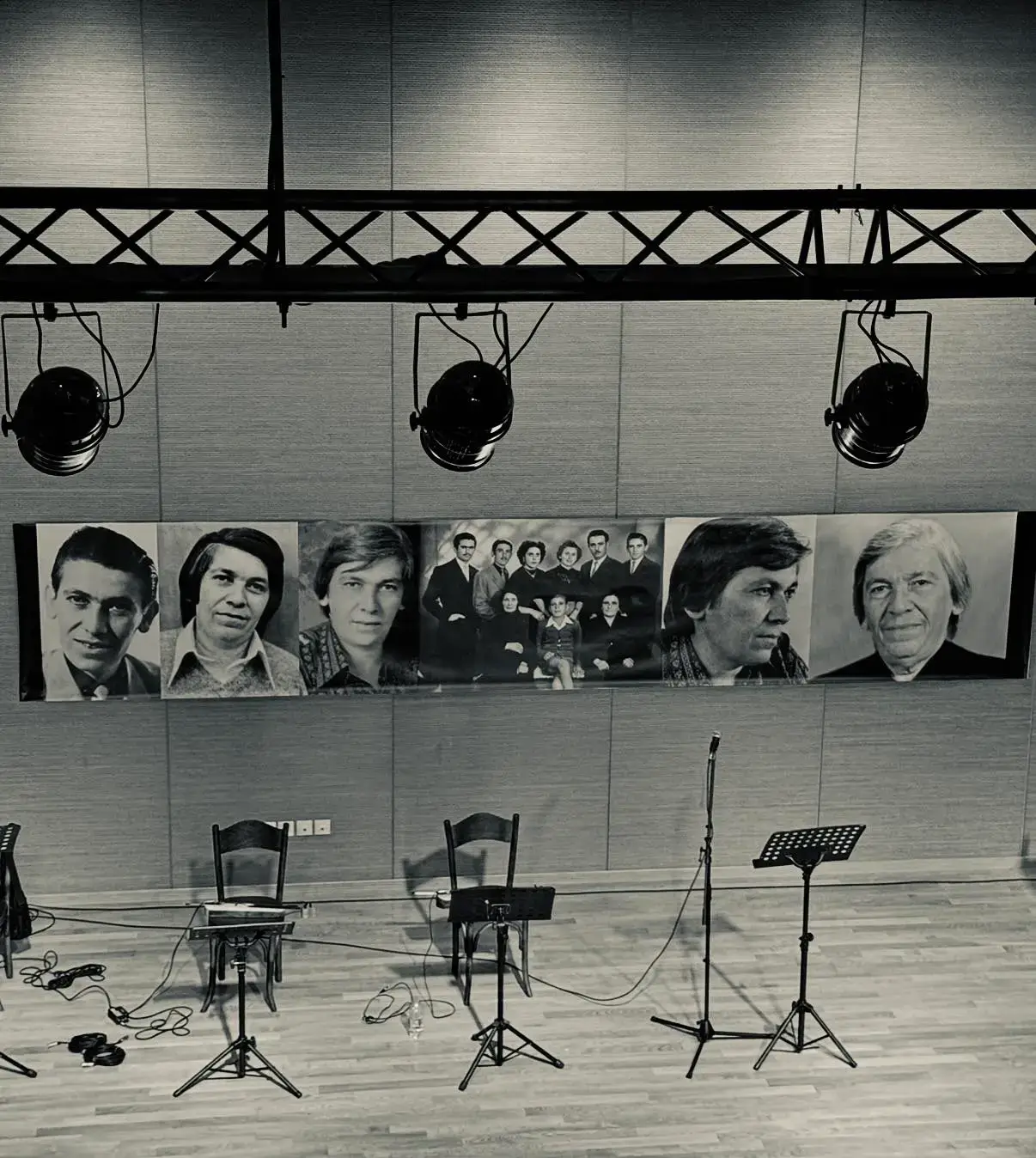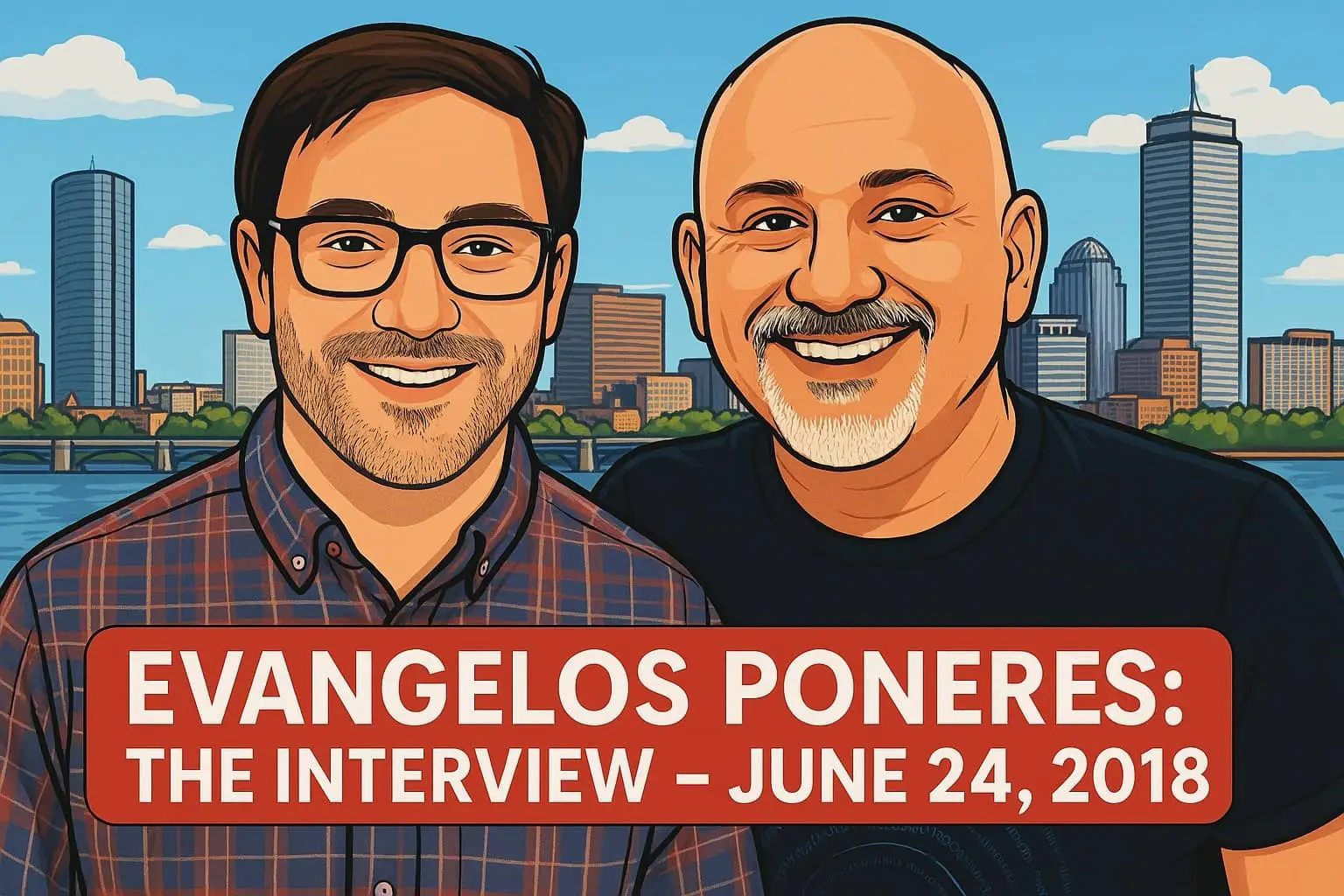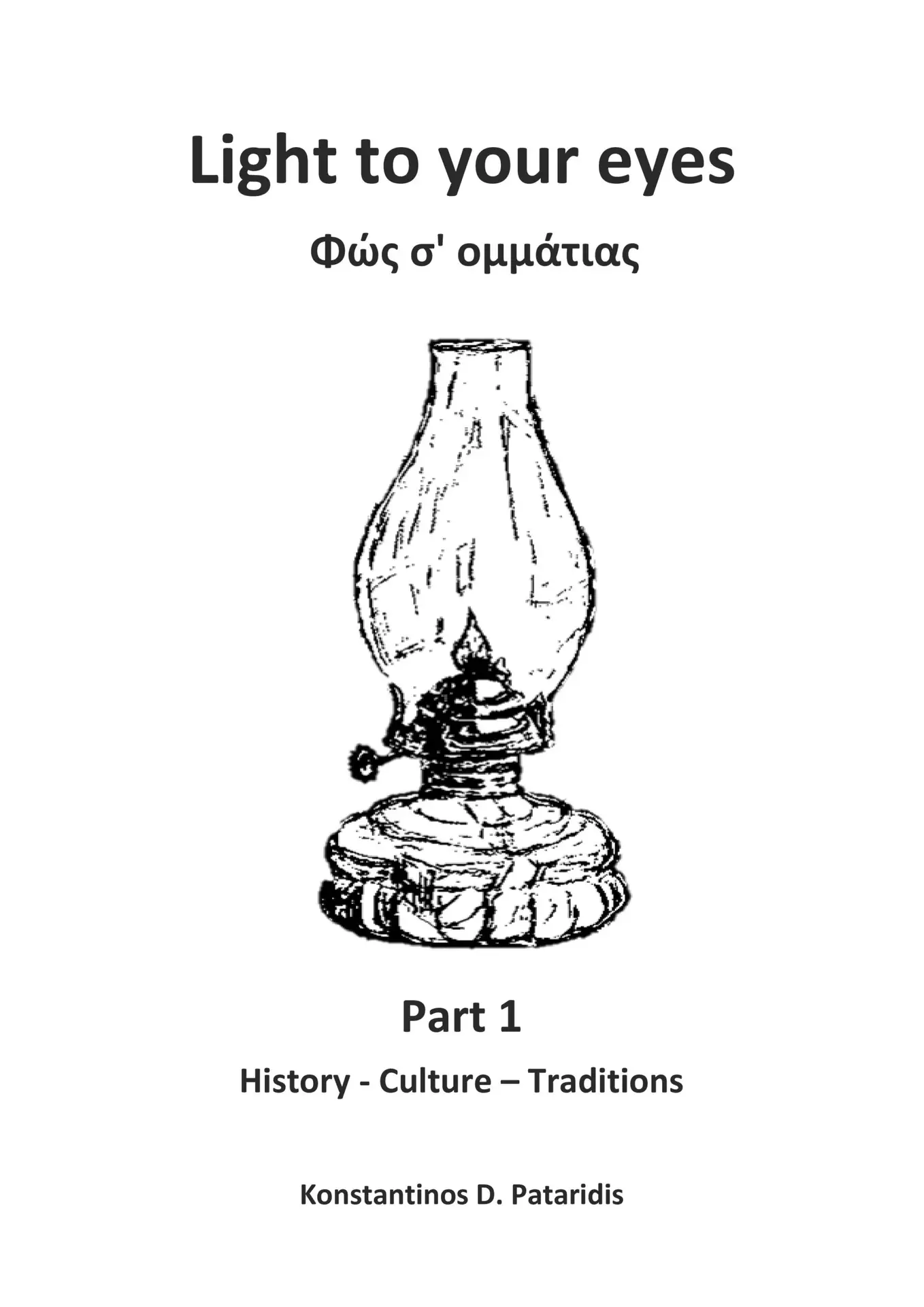ΘΕΟΧΑΡΗΣ ΑΚΡΙΤΙΔΗΣ – ΑΛΕΞΑΝΔΡΟΣ ΑΚΡΙΤΙΔΗΣ
THEOCHARIS AKRITIDIS – ALEXANDROS AKRITIDIS
ΘΕΟΧΑΡΗΣ ΑΚΡΙΤΙΔΗΣ – ΑΛΕΞΑΝΔΡΟΣ ΑΚΡΙΤΙΔΗΣ
Ο Θεοχάρης Ακριτίδης γεννήθηκε το 1961 στο χωριό Μεσόβουνο του Νομού Κοζάνης, ένα αμιγές ποντιακό χωριό με κάτοικους Απεσλήδες από την περιοχή της Σεβάστειας. Το χωριό του παππού του λέγεται Σάργερη (Κεμίν) το οποίο το επισκέπτηκε το 2013. Δυστηχώς, η πρώτη προσφυγική γενιά εκτελέστηκε από τους Γερμανούς τον Οκτώβρη του 1941 και δεν τους γνώρησε. Η επόμενη γενιά άρχισε από το μηδέν, φτώχεια μεγάλη. Απο μικρός έκανε καπνά, δούλεψε σε μηχανουργεία σε κουμπίνα μαζί με τον πατέρα του. Κοιμόντουσαν κάτω από τα αστέρια στο κάμπο της Λάρισας.
Μέχρι τα 15 του, δεν φανταζόταν οτι θα τραγουδούσε διότι είχε μεγάλο κόμπλεξ, το οποίο το δημιούργησε ο δάσκαλος του. Στο δημοτικό, δεν τον έβαζε σε χορωδίες στο επιτάφιο λόγω της μπάσας φωνής του. Θεωρούσε ότι ακούγεται σαν παραφωνία! Οταν κατέβηκε στην Πτολεμαϊδα και πήγε στην τεχνική σχολή, έκανε παρέα με τον Χρήστο Ακριτίδη. Μαζί μεγαλώσαν στο χωριό, αλλά στην πόλη πήγαινα σπίτι του τα βράδια εκεί που νοίκιαζε. Τότε μάθαινε ο Χρήστος ακκορτεόν. Τα τραγούδια που έπαιζε τα ήξερα και άρχισε να τραγουδάει μαζί του. Ο ένας έκανε εξάσκηση στο όργανο και ο άλλος μάθαινε πως μπαίνει και που να σταματάει στο τραγούδι. Δεν είχε στο μυαλό του να βγει στον κόσμο μπροστά.
Ο Χρήστος λοιπόν δούλευε με το συγκρότημα που είχε ο πατέρας του, ο Δημήτρης Ακριτίδης “Μήτσον” στη λύρα, ο Κοσμάς Ακριτίδης στο κλαρίνο, και ο Χρήστος Ουζουνίδης στα τύμπανα. “Ο Χαρούλης τραγουδάει” είπε ο Χρήστος στην ορχήστρα, και τον προτείναν τα Χριστούγεννα του 1978 να πάει μαζί τους σ’ ένα χορό στο Κάτω Γραμματικό της Έδεσσας. Είχε πολύ τρακ, έτρεμε το χέρι του αλλά τα έλεγε αυτά που ήξερε. Μετά, τον δώσανε και συγχαρητήρια. Έτσι πήρε το “βάπτισμα”.
Μέχρι να πάει φαντάρος δούλευε μαζί τους και ταυτόχρονα έκανε και μερικά μαθήματα κιθάρας με τον δάσκαλο του Φαίδων Γεωργίτσης, ο οποίος τον πήρε σε λαϊκό μαγαζί. Ταίριαζε η φωνή του με τον Γαβαλά, και μπήκε και στο χώρο της λαϊκής μουσικής. Την δεκαετία του 1980 δούλευε σε μαγαζιά όπως τον “Πόντο”, το “Κορτσόπον”, στις “Αναμνήσεις” στην Πτολεμαϊδα, και στην Βέροια στον “Ξεριζωμό” και στο “Φάρο”. Στην συνέχεια άρχισε να ασχολείται και με τον ποντιακό στίχο, αφού μέχρι 13 χρονών μιλούσε συνέχεια ποντιακά. Με τα λίγα ελληνικά που ήξερε άρχισε να γράφει στίχους αλλά και μελωδίες.
Το 1988 πήγε στον Μπάμπη Κεμανετζίδη με μια κασέτα με τα τραγούδια του να δει πως μπορεί να τα ηχογραφήσει. Το αποτέλεσμα ήτανε ο πρώτος του δίσκος με τίτλο “Ο Διγενής”. Ομως νιώθει τύψεις γιατί έχασε τα δικαιώματα των τραγουδιών λόγω άγνοιας, και ειδικά στο τραγούδι “Οσοι αγαπούν” γιατί ήτανε μουσική του συγχωριανού του Λάζαρου Παπαδόπουλου (ο Χάστον), στο οποίο έπρεπε να μπει το όνομα του τιμής ένεκεν. Ο Λάζαρος πρότεινε τον Θεοχάρη να πάει Αμερική στο Νορουάλκ, αλλά δεν μπόρεσε λόγω υποχρεώσεων. Για πολλά χρόνια συνεργάστηκε με τον Χρήστο Ασφαλτίδη, πάντα παίζοντας κιθάρα και τραγουδώντας από ποντιακά μέχρι δημοτικά και λαϊκά. Μια φορά θυμάται σε χορό στην Καστοριά ήρθε ο Χρύσανθος μαζί με τον Δημήτρη Κούγιουμτζίδη και τους άκουγε πως παίζανε. Οταν ανέβηκε ο Χρύσανθος, ο Θεοχάρης κατέβηκε από την ορχήστρα, πιστεύωντας οτι ο Χρύσανθος δεν ήθελε κιθάρα λόγω παράδοσης. Αφού τελείωσε τα επιτραπέζια τραγούδια και μπήκε στα ρυθμικά κομμάτια για χορό, κάτι δεν τον γέμιζε. “Ο κιθαρίστας που εν;” Πάει ο Θεοχάρης και του λέει “εγώ είμαι”. Απαντάει ο Χρύσανθος “δέβα παίξον”!
Το 2008 κυκλοφόρησε το δίσκο “Πόντου Γενεάν” μαζί με τοπικούς μουσικούς. Ενας από αυτούς, ο Διονύσης Παυλίδης στη λύρα, είναι συνεργάτης του για πολλά χρόνια, και βοήθησε τον γιο του τον Αλέξανδρο στο ξεκινημά του.
Τώρα πλέον πιστεύει ότι την σκυτάλη την έχουν οι νέοι, και εύχεται το ποντιακό τραγούδι να ακούγεται για πολλά χρόνια ακόμα.
Ο Αλέξανδρος Ακριτίδης γεννήθηκε στις 20 Απριλίου του 1996. Με παρότρυνση απο τον πατέρα του, αλλά και με δική του θέληση, ξεκίνησε γύρω στα 10 του αρμόνιο σε ωδείο της Πτολεμαϊδας. Σε ηλικία 16 χρονών άρχισε μαθήματα λύρας στον Διονύση Παυλίδη. Μέσω της λύρας προέκυψε και το τραγούδι, αλλά και από ακούσματα που είχε από τον πατέρα του. Παρακολούθησε και κάποια μαθήματα Βυζαντικής μουσικής, ως και μαθήματα λύρας στον Παναγιώτη Ασλανίδη. Σπούδασε στο Αλεξάνδρειο Τεχνολογικό Εκπαιδευτικό Ίδρυμα Θεσσαλονίκης (ΤΕΙ Σίνδου). Σήμερα συνεργάζεται μαζί με τον Διονύση Παυλίδη και με τον Τριαντάφυλλο Ταρατσίδη.
Το Ράδιο Τραπεζούντα Βοστώνης ευχαριστεί θερμά τον κ. Θεοχάρη Ακριτίδη και τον κ. Αλέξανδρο Ακριτίδη για την συμπαράσταση τους και την συμμετοχή τους!
Theocharis Akritidis was born in 1961 in the village of Mesovouno of Kozani, a pure Pontian village with inhabitants from Apesh, Sevastia. His grandfather’s village is called Sergeri, which he has visited in 2013. The first generation of refugees which inhabited Mesovouno were executed by the Germans in October, 1941 and therefore he never met his grandparents. The next generation (his parents) started from scratch, dealing with great poverty. From a young age Theocharis worked in the tobacco fields, small smoker, in a machining shop with his father. They would sleep outside under the stars in the fields of Larissa.
By the age of 15, he never expected to become a singer because of a complex that his teacher created. In elementary school, he was not chosen to join the choir for Easter Week’s Epitaph services because of his deep voice. His teacher told him it sounded bad! Later when he started technical school in Ptolemaida, he would spend time with Christos Akritidis. They grew up together in Mesovouno, but in Ptolemaida he would visit Christos at his house where he rented in the evenings. Christos was learning to play accordion, and the songs he was learning Theocharis knew, so he would sing together with him. Again, he wasn’t planning on singing professionally.
Christos was working with his father’s band, which was composed of Dimitris Akritidis “Mitson” on the Pontian lyra, Kosmas Akritidis on clarinet, and Christos Ouzounidis on drums. Christos told the band members that “Haroulis sings”, and suggested that he join the band at their Christmas dance in 1978 in Kato Grammatiko, Edessa. Theocharis was very shy with his hands shaking the night of the performance, but he knew the songs. The evening went so well that he was even congratulated afterwards. This was his first performance.
Until Theocharis went for military training, he performed with the band and at the same time took some guitar lessons with instructor Phaidon Georgitsis, who took him to a popular “laiko” nightclub to sing. His voice sounded like Panos Gavalas. In the 1980’s he worked in the nightclubs such as “Pontos”, “Kortsopon”, and “Anamniseis” in Ptolemaida, and the clubs “Xerizomos” and “Faros” in Veria. At this time he started writing Pontian lyrics as well as melodies, as the Pontian dialect was his main language until the age of thirteen so he knew it well.
In 1988 he went to the well known musician and studio engineer Babis Kemanetzidis with a cassette tape containing his songs to see how he could record them. The result was his first album titled “O Digenis”. However, he feels remorse because he lost the rights of his songs due to his own ignorance, and especially in the song “Osi Agapoun” because it was based on the music of his fellow-villager Lazarus Papadopoulos (Hashton), who should have duly received credit. Later, Lazaros suggested that Theocharis should go to America in Norwalk to perform with him, but Theocharis was unable to do so because of his obligations. For many years he has collaborated with Christos Asfaltidis, always playing guitar and singing Pontian, laika and dimotika. One time he remembers a dance in Kastoria where the famous singer Chrisanthos came to perform along with lyra player Dimitris Kougioumtzidis. Chrisanthos listened to the band as they were playing. When the famous singer got up to perform, Theocharis left the stage, believing that Chrisanthos did not want guitar due to his traditionalist stance. When the “table songs” were over and the dancing began, Chrisanthos was not satisfied with the overall sound. “Where is the guitarist?” he asked. “Get up and play” he told Theocharis!
In 2008 his second album “Pontou Genean” was released together with local musicians. One of them, Dionisis Pavlidis on the lyra, performs together with him for many years, and helped his son Alexander in his beginnings.
At this point, Theocharis believes that the younger generation should take the reigns, and hopes that Pontian music will be heard for a long time to come.
Alexander Akritidis was born on April 20, 1996. At his instigation from his father, but also with his own will, at the age of 10 he began his musical studies in the conservatory of Ptolemaida playing keyboards. At the age of 16 he started lyra lessons with Dionisis Pavlidis. Slowly through the lyra lessons but also because of his father’s influence, he began singing as well. He also attended some courses of Byzantine music, as well as several lyra lessons with Panagiotis Aslanidis. He studied at the Alexandrian Technological Educational Institute of Thessaloniki (TEI of Sindos). Today he performs together with Dionisis Pavlidis and with Triantafillos Taratsidis.
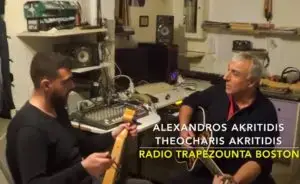
Radio Trapezounta Boston
Dedicated to the Musical Traditions of Hellenic Pontos
Radio Trapezounta Boston on Social Media:
?https://www.radiotrapezounta.com
?https://trapezounta.com
?https://tunein.com/radio/Radio-Trapezounta-Boston-s301498/
?https://www.facebook.com/radiotrapezounta/
?https://twitter.com/trapezounta
?https://www.instagram.com/iapaz/
?https://www.pinterest.com/radiotrapezount/
?https://www.youtube.com/apazogli
?https://plus.google.com/+JohnApazidis

